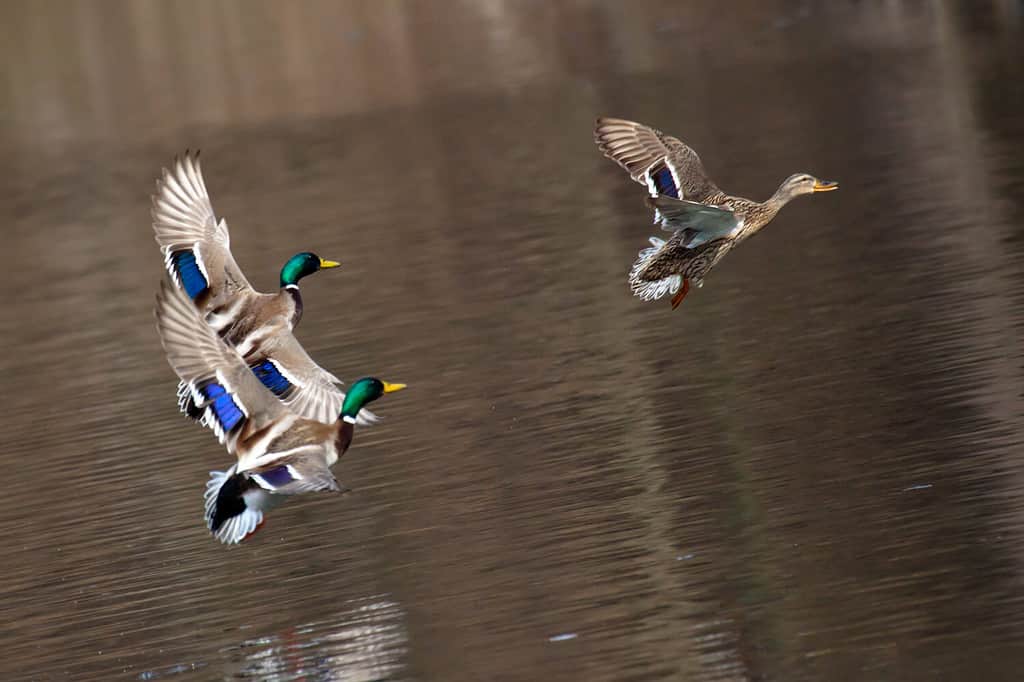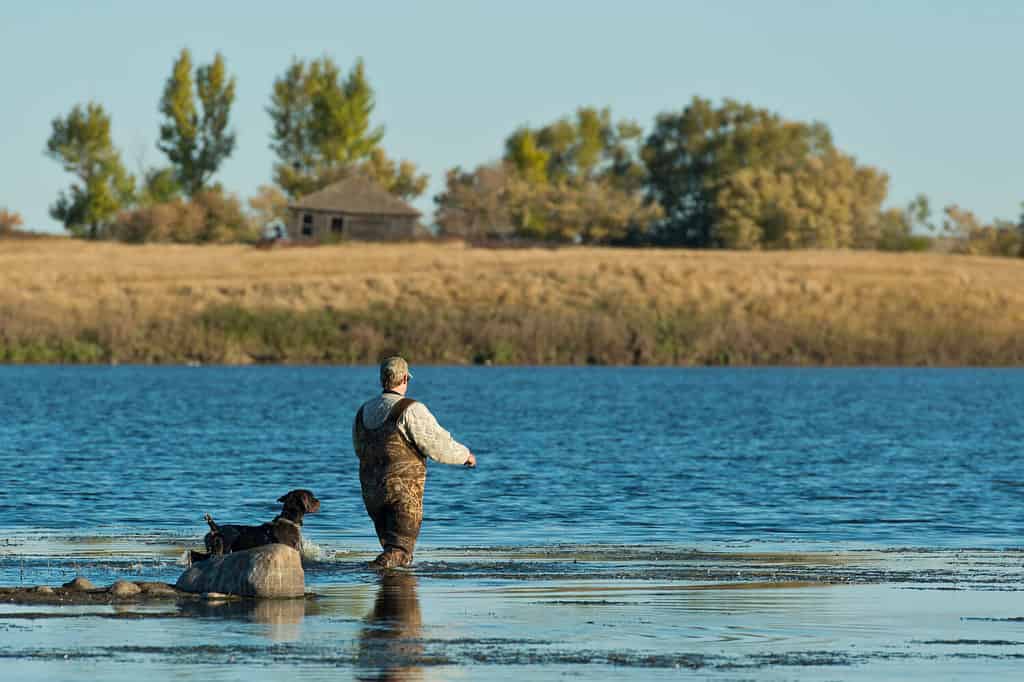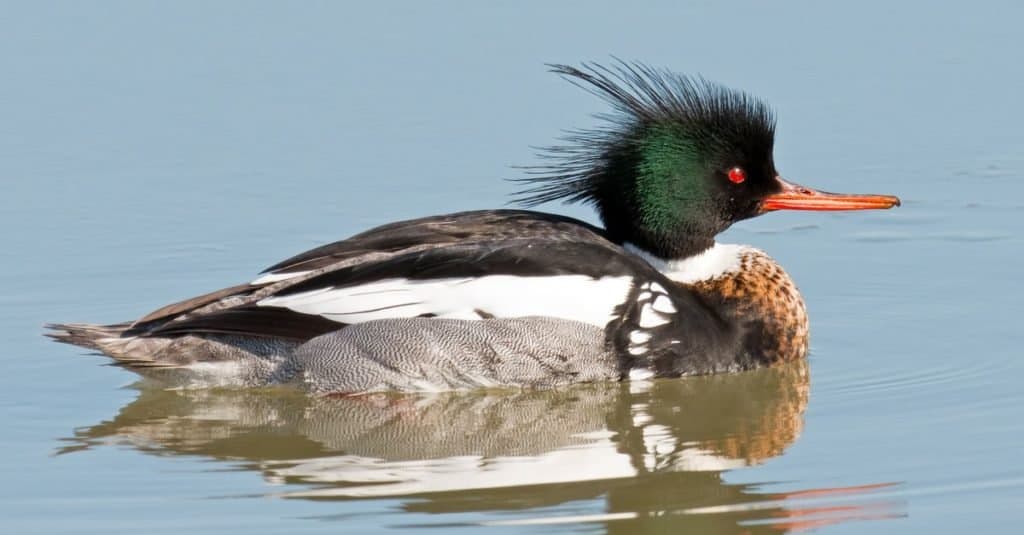Duck hunting season is something that many avid hunters look forward to all around the country. Ducks and other waterfowl have been hunted since pre-recorded history. Not only were they a good source of food, but their feathers were also used on everything from weapons to clothing to ceremonial dress. Modern-day duck hunters have the benefit of state-of-the-art weaponry made for hunting ducks.
Oregon is known for its duck population. In fact, the mascot of the University of Oregon is a duck! Fortunately for duck hunters, you can still bag your feathered friends as long as it is during the designated season and locations.
Can You Duck Hunt in Oregon?
Yes, you can hunt ducks in Oregon. You do not need to be a resident but you will need to purchase a license. The resident license is considerably cheaper (by over $100) than the non-resident license. These are available through the Oregon Department of Fish and Wildlife. You can opt for an annual hunting license or a combination hunting and fishing license. They even offer a Sports Pac, which allows the license holder to hunt and fish with specific validations for specific species. These are only available for residents, however.
To go duck hunting in Oregon, you will need a few special validations before you are ready to go. These include the Harvest Information Program (HIP) validation, a resident waterfowl validation, and a federal waterfowl stamp. You can get these at the same time as your hunting license.

Ducks are often found around water, making it a good place to go duck hunting.
©Olexandr Panchenko/Shutterstock.com
Some species and locations require further licensing. Sea ducks, which include harlequin, scoter, long-tailed, and eider ducks, require a sea duck hunting permit. You can also hunt geese using the waterfowl hunting license and validations in most areas. However, if you are hunting geese in northwestern Oregon in the fall, you will need to take and pass a test to distinguish between species of geese. This ensures that you will not accidentally target the vulnerable Canada Geese, which can be plentiful in the area in the winter. After passing the test, you’ll get a Northwest Oregon Goose Permit and be able to hunt geese in that area.
Many of the same validations are available for youth hunters (ages 12-17) for a discounted rate. Uniformed service members, disabled Veterans, and seniors who are Oregon residents can also get a lower rate for their hunting license. You will need to get a parking pass in many wildlife areas. Fortunately, you can purchase an annual parking pass along with your hunting license for a discounted rate.
Duck Hunting Season Dates in Oregon
Duck season typically begins in October and goes through January. The exact date varies by year but usually falls around the same time of the month. Duck season and goose season both open and close on the same days.
In 2022, duck season began on October 8th in the southeastern and central parts of the state. In the northwestern portions, it began on October 15th. Oregon divides the state into two zones and the exact dates for duck season are different in each zone. You can search by county to see which zone you fall in before hunting. The 2022 duck hunting season concluded on January 22nd in Zone 2 and on January 29th in Zone 1. There were a few days during hunting season that were excluded and duck hunting on those days is illegal.

You should ensure that you have the proper licenses before going duck hunting.
©Steve Oehlenschlager/Shutterstock.com
Daily Bag Limits in Oregon
The daily bag limit for duck hunting in Oregon is seven. This means that you cannot take home more than seven ducks after a day of hunting. The daily bag limit is the number of ducks per person with a hunting license can have. This includes merganser ducks, which you may recognize by the tufts of feathers on their heads. There are limits on other kinds of ducks, however. You are limited to no more than two scaup. Hen mallard ducks also come with a limit of two per bag. You can only have one pintail, two redhead ducks, and two canvasback ducks per bag.

Mergansers often have distinct tufts on their heads.
©Brian E Kushner/Shutterstock.com
Possession Limits in Oregon
When duck hunting, you don’t need to wait to eat, stuff, or otherwise use the ducks that you caught before going out for another day of hunting. This is known as the possession limit. You cannot have more than this number in your possession at any time. Possession limits include any ducks that you have caught that day as well as those you have at home.
The possession limit for ducks in Oregon is three times the daily bag limit. This means that you can have up to 21 ducks, although you still need to follow the limits for each species. For example, you can have up to 21 ducks but only six of them can be canvasback ducks (three times the daily bag limit of two).
When Does Duck Hunting Season Start in Oregon?
The exact dates for each year’s hunting season vary. It is best to check with the local authorities and the Oregon Department of Fish and Wildlife before you start duck hunting. You can expect the season to begin around early to mid-October. When you purchase your hunting license, you can get the specifics for the upcoming year as well as insight on the best places to go duck hunting.
The photo featured at the top of this post is © iStock.com/Irving A Gaffney
Thank you for reading! Have some feedback for us? Contact the AZ Animals editorial team.






